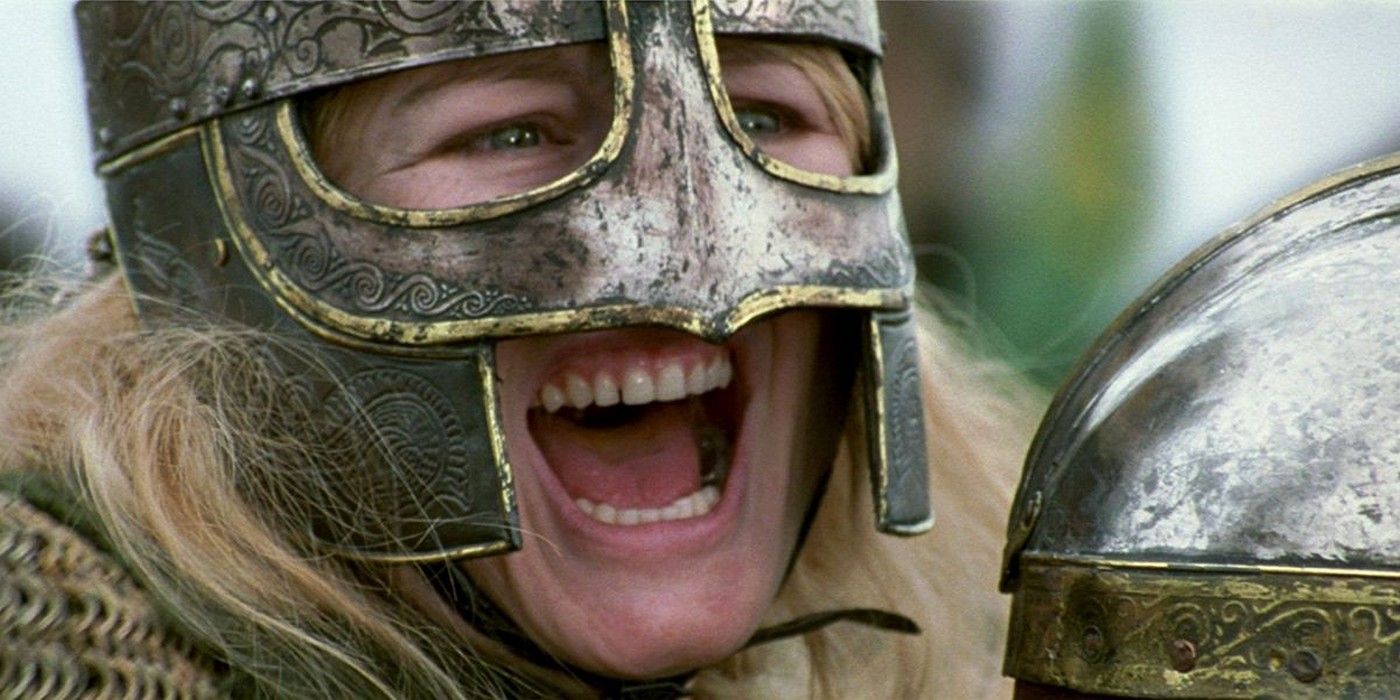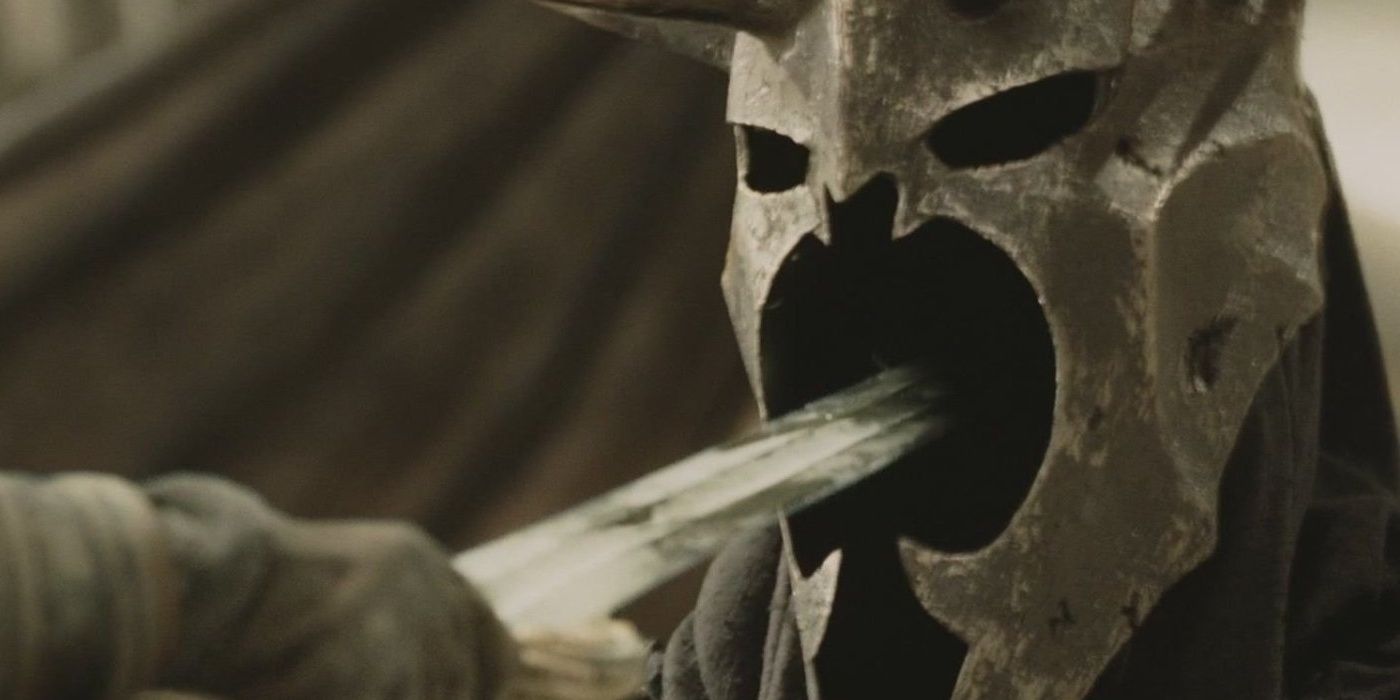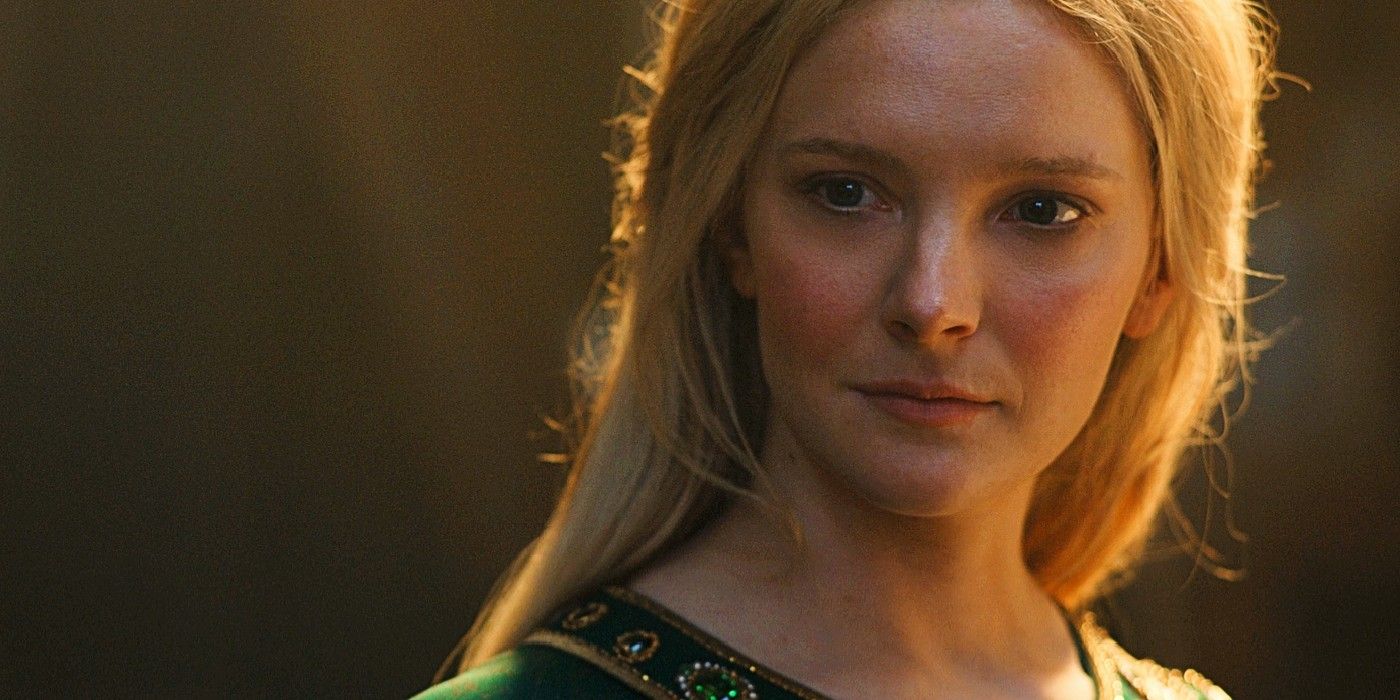Éowyn killed the Witch-king of Angmar in The Lord of the Rings: The Return of the King, but the movie leaves out some important details about how she did it when the Witch-king is more-or-less immune to mortal weapons. Played by Miranda Otto, Éowyn is introduced in The Two Towers as a citizen of Rohan and the niece of King Theoden. With sexism even more popular than facial hair in Middle-earth, the battlefield is deemed no place for a woman, but Éowyn harbors a burning desire to protect her homeland against the oncoming forces of the Great Eye of Mordor, Sauron, rather than taking shelter and waiting idly by. Along with Merry, now separated from the rest of the Fellowship and his Hobbit pals, Éowyn disguises herself and secretly joins the Battle of the Pelennor Fields outside of Minas Tirith.
In one of The Return of the King's most famous scenes, the Witch-king arrogantly proclaims that no man can kill him, to which Éowyn replies with her iconic "I am no man!" line and promptly slays him. Jackson's movie plays up Éowyn's femininity as the cause of her victory, but there's much more going on here. Strangely enough, the Witch-king's fatal weakness isn't two X chromosomes. The death of the Witch-king is actually more a team effort between Éowyn and Rohan's resident Fellowship hobbit, Merry. In the third Lord of the Rings film, Éowyn is being held by the Witch-king of Angmar, but is released when her hairy-footed friend sneaks up behind the chief Ringwraith and stabs him in the leg. The blade glows brightly and is then destroyed, as all weapons are when used on the Nazgûl. But an ordinary sword shouldn't bring the Witch-king to his knees. Here's why the Witch-king died in Return of the King after Éowyn followed up on Merry's sneak attack.
Merry's Sword Is Key To The Witch-King's Death
Although altered in the movies, Merry's sword in the books is far from ordinary. The hobbit carries an ancient Barrow-blade that was crafted by men when Middle-earth was locked in war against Sauron's forces at Angbad. The weapon is quite literally designed to be used against dark magic, and was given to Merry by the mysterious mysterious Tom Bombadil, who was notoriously cut from the Lord of the Rings movie trilogy. When Merry cuts the Witch-king, his blow is "breaking the spell that knit [the Witch-king's] unseen sinews to his will," which could be interpreted as opening the villain up to Éowyn's finishing strike straight through the hood. Since Merry receives his sword from Aragorn instead of Bombadil in the movie adaptation, its significance is lost. Moreover, the weapon Merry is given in the first film isn't returned after he and Pippin are captured by orcs. The blade he wields during the Battle of the Pelennor Fields in Jackson's trilogy is a replacement, but still has the same magical effect, creating somewhat of a plot hole.
The Witch-king's boast that no man can kill him comes from the elf Glorfindel, who foretold "not by the hand of man shall he fall." However, this line was always more of a symbolic prophecy than literal confirmation that men physically couldn't slay the Witch-king. Éowyn and Merry's victory fulfilled Glorfindel's prediction, but their gender and species weren't the deciding factors in bringing down the Ringwraith, it was a unique alignment of fated circumstances, which as Glorfindel predicted, didn't involve a man.
Some might argue that Merry's role in the Witch-king's demise dilutes the feminist message The Lord of the Rings sends with Éowyn's big moment, but all things considered, the full story makes Éowyn's arc even more powerful. Rather than being able to defeat the Witch-king simply because she's a woman, anyone on the battlefield could have felled the enemy under the right circumstances, but it was Éowyn whose courage and strength held out, making her victory all the more glorious.
How Rings Of Power Builds On Éowyn's Legacy
Deep Tolkien-lore technicalities aside, Éowyn killing the Witch-king was a huge moment for women in the fantasy genre. Fantasy, especially epic high-fantasy like Jackson's trilogy, has been guilty of placing women in the "damsel-in-distress" role for eons, and The Lord of the Rings turned the trope right on its head with this particular slaying. Her character is now one of many women, such as Arya Stark in Game of Thrones, who have found themselves to be more than capable on the battlefield. Éowyn's impact can be felt in subsequent Lord of the Rings projects too, as she clearly inspired some of The Rings of Power's strongest female characters, including Galadriel.
What Galadriel Did Before Lord Of The Rings
Morfydd Clark's Galadriel is now the one leading the pack through the trials and tribulations of Middle Earth, carrying on Éowyn's legacy of Middle-earth's women leading by example when it comes to facing insurmountable evil. It's doubtful Galadriel's exploits in Rings of Power or Tauriel's introduction to The Hobbit mythos would've been possible without Éowyn first paving the way. It was truly a groundbreaking moment of feminism within the fantasy genre. Éowyn's slaughtering of the Witch-king in The Lord of the Rings: The Return of the King smashed gender stereotypes and ushered in a new era for female heroes.



